
From warding off intruders to protecting from falls, bars on windows can make a home much more secure. Here’s how much it costs to install bars on windows.
Only you can prevent house fires, and only if you have the know-how


Home fires can cause a massive amount of property damage and very quickly endanger your entire family. The best way to fight fires is to prevent them from happening in the first place. We've laid out nine home safety tips for fire prevention to help you keep your home and your family safe.
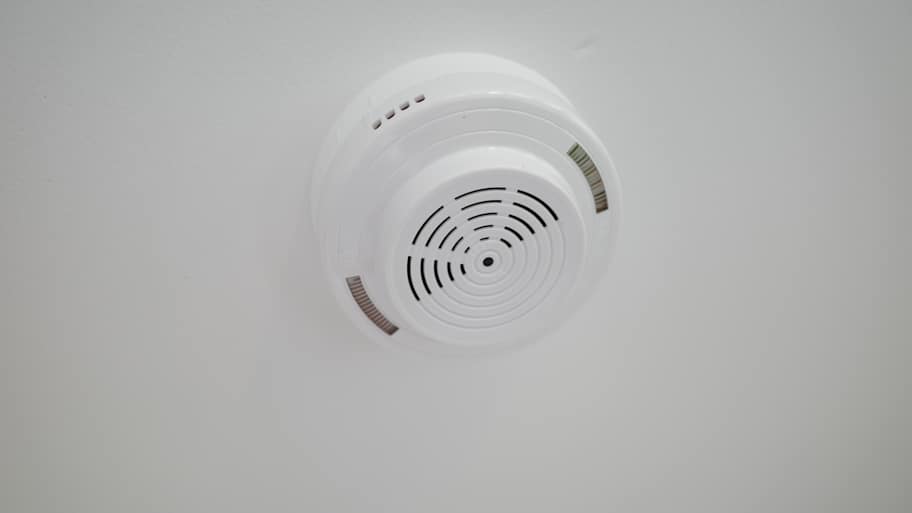
Install smoke alarms on every level of your home, inside bedrooms, and in outdoor sleeping areas. Mount them on ceilings or high on walls and keep them at least ten feet from stoves and ovens to reduce the chance of a false alarm. Alarms with strobe lights or bed shakers are recommended for family members who are hard of hearing.
You can hire a local home security system pro to install smoke alarms as part of a larger system to protect your home from common perils.
Once installed, test each alarm monthly to ensure it's working properly. Most smoke alarms are battery-operated, so replace the batteries every year and replace the alarms every 10 years. Even if your alarms are hardwired, check that the backup batteries work each month. Do the same for any carbon monoxide detectors in your home.
According to the American Red Cross, home heating is the second leading cause of house fires. Never leave any of the following unattended:
Fireplaces
Space heaters
Wood stoves
Candles
Turn them off or extinguish them when leaving the room. Some space heater models automatically shut off after a certain duration or when tipped over.
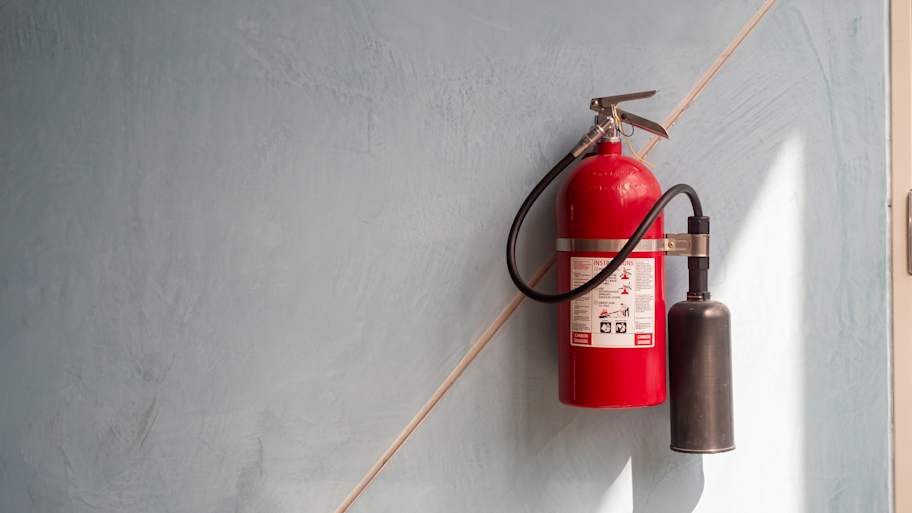
If a fire occurs in your home, a fire extinguisher can help you put it out quickly. Keep one in an accessible place and learn to use it. Fire extinguishers are ideal for small fires that aren't spreading or producing much smoke. The rest of your household should evacuate while you pull the pin, aim at the fire's base, slowly squeeze the handle, and sweep the nozzle side to side.
Keep flammable objects like paper and fabric at least three feet away from sources of heat or flame, and don't allow children or pets to get close. Ensure space heaters and portable AC units are plugged directly into outlets rather than extension cords, and don’t run cords under rugs or behind walls. Place units on flat, nonflammable surfaces like tile rather than carpets or rugs.
Electricity is a potential fire hazard and should be taken seriously. Keep the following in mind to help prevent electrical fires:
Immediately unplug an electrical appliance that smokes or smells like it may be burning.
Have smoking appliances serviced and confirm that they are not hazardous before use.
Replace any electrical cord that is cracked or frayed.
Use appliances and extension cords as directed and avoid overloading circuits.
Don't attempt repairs or changes to your fuse box or electrical panel without a license.
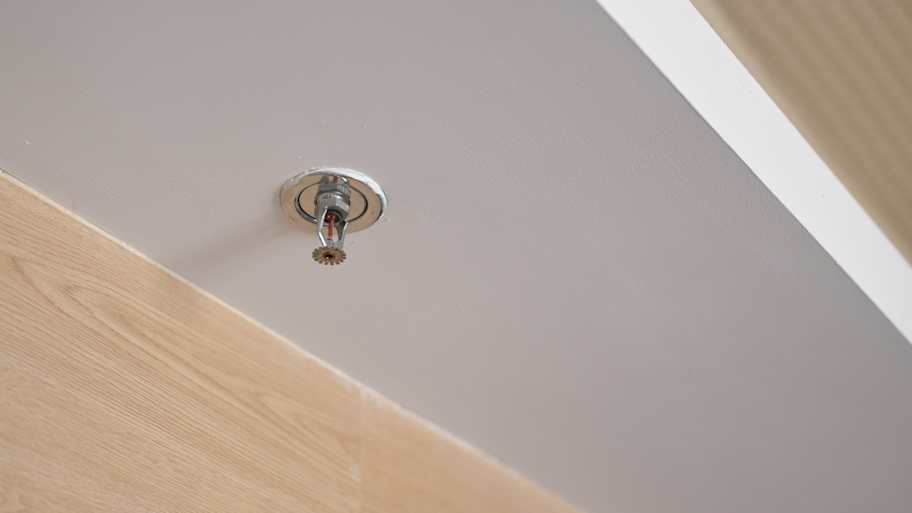
If members or guests of your household smoke, have them do so outdoors at a safe distance from flammable structures. Never smoke in bed, when drowsy, or around someone using oxygen therapy.
Don't discard cigarette butts in waste bins until you have soaked them in water. Use large, deep ashtrays that won't tip over, and never discard cigarettes in potted plants, landscaping vegetation, or bark dust.
Children should learn not to play with fire or with sources of fire. Teach them that stoves, matches, and lighters are tools rather than toys and to never use them without adult supervision. If they find these tools, they should bring them to an adult right away.
Even with these lessons, you should take proactive steps to keep fire out of kids' hands. Buy child-resistant lighters and store lighters and matches in high places or locked cabinets. You can also put childproof knob covers on stoves to make operation more difficult for them.
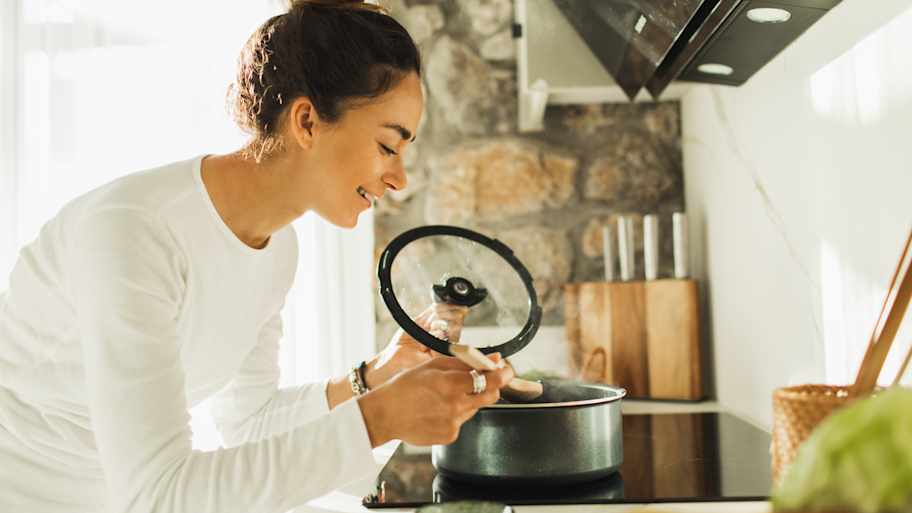
Never leave lit stoves, ovens, or grills unattended. Check food simmering, baking, or roasting frequently to ensure it isn't burning. Use timers to remind you when to check.
You should also keep the following in mind while cooking:
Do not cook while tired or after consuming alcohol.
Cooking areas should be clean and free of flammable debris.
Don't wear clothing with loose sleeves or fabric that could catch fire.
Turn pot handles inward so they can't be bumped accidentally or grabbed by children.
If grease catches on fire, smother the flames with a lid, turn off the heat source, and wait until the pan has cooled completely. If unsure whether you’ve contained the grease fire, get out of the house and call 9-1-1.
From average costs to expert advice, get all the answers you need to get your job done.

From warding off intruders to protecting from falls, bars on windows can make a home much more secure. Here’s how much it costs to install bars on windows.

A security camera system gives you peace of mind that there’s always a watchful eye on your home. Learn the costs of installing surveillance cameras.
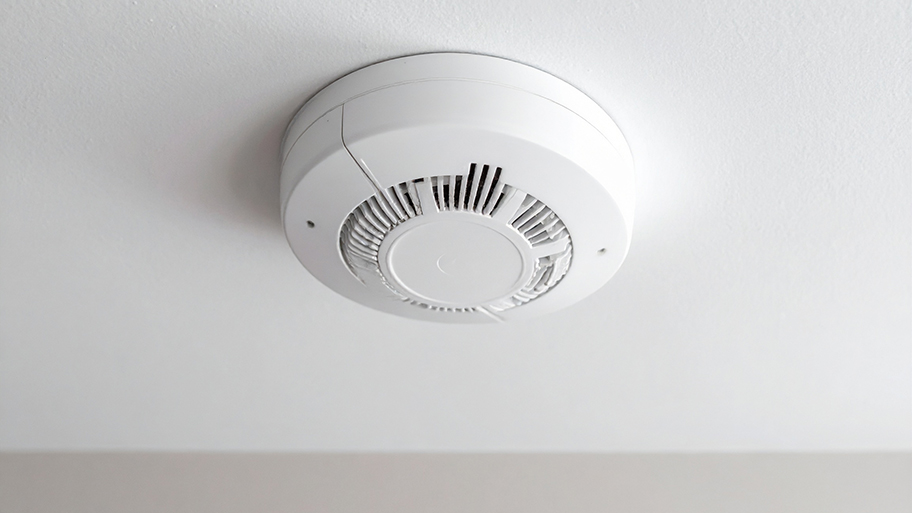
Discover true smoke detector installation costs. Learn about average prices, cost factors, and tips to save on your smoke detector installation project.

Do security system signs really deter burglars? They might help, but fake security signs can get you in some legal trouble. Find out how to best use security signs and other top security measures to help prevent a burglary.

You don’t have to spend thousands to set up a security system. Follow this DIY guide to learn how to install security cameras and protect your home.

Fireproofing can protect your home from a devastating fire. Learn how to build a fireproof house inside and out with this DIY guide.